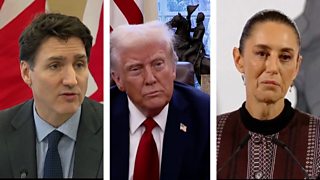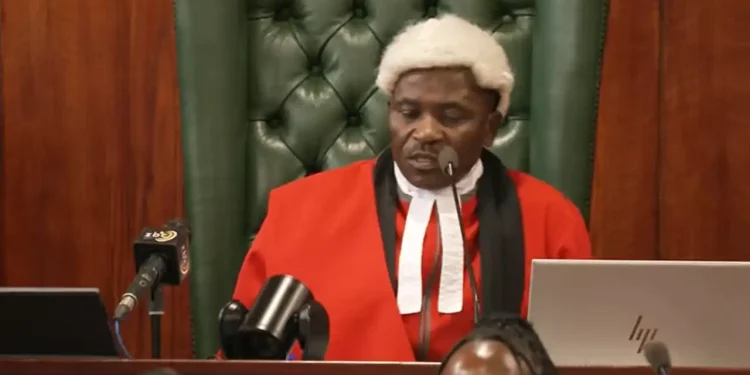Trump backs down on Tariffs, grants Mexico, Canada temporary relief. By Dally Iyamu

Trump backs down on Tariffs, grants Mexico, Canada temporary relief

It has been another week of rapid reversals on tariff policies from Washington, as the month-long delay on President Donald Trump’s previous order imposing tariffs on imports from Canada and Mexico expired.
In February, Trump announced a 25% tariff on goods from key trade partners Mexico and Canada. However, after negotiations with their respective leaders who pledged greater cooperation on border security he postponed their implementation by a month. Meanwhile, China has been subject to 10% tariffs since then.
When the 30-day delay ended, the tariffs took effect shortly after midnight on Tuesday. Stock markets dipped, Canada retaliated with its own tariffs, and Trump gradually scaled back some of the measures throughout the week.

Tariffs function as taxes on imports, and economists widely agree that the costs are ultimately passed on to consumers, potentially slowing economic growth.
Here’s where tariffs on Canada, Mexico, and China stand as of Friday:
Tariffs on Mexican and Canadian Imports Delayed by Another Month

On Monday, Trump announced that the 25% tariffs on imports from Mexico and Canada would take effect Tuesday morning.
“There’s no more room for Mexico or Canada,” Trump declared. “The tariffs are all set. They’re going into effect tomorrow.”
However, Canada swiftly responded with retaliatory tariffs, and Ontario’s premier warned that the province was prepared to cut off electricity exports to three U.S. states if the tariffs remained in place.
By Thursday, Trump announced that a subset of goods covered under the United States-Mexico-Canada Agreement (USMCA) would be exempt from new tariffs for at least another month.
This exemption applies to approximately 38% of imports from Canada and 50% from Mexico. Meanwhile, Canadian energy exports and the fertilizer ingredient potash will face a reduced tariff rate of 10%.
Speaking from the Oval Office on Friday, Trump also threatened reciprocal tariffs on Canadian lumber and dairy imports, suggesting they could be implemented as early as Friday, Monday, or Tuesday, according to Reuters.
The White House announced Wednesday that automobiles would be exempt from the newly imposed tariffs following strong opposition from General Motors, Ford, and Stellantis.
White House Press Secretary Karoline Leavitt stated that these tariffs, along with those under other exemptions, will now take effect on April 2.




